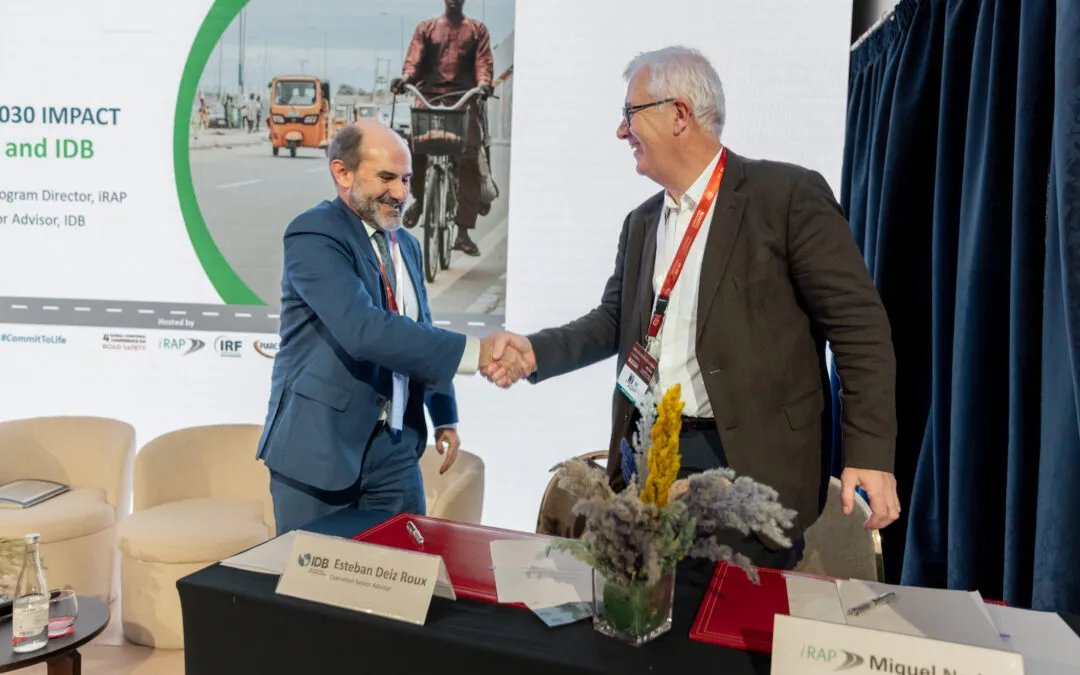
For the last seven years the
Q: How can improved rural transport drive sustainable rural development and national growth?
A: It is widely recognised that good rural transport in developing countries - which is safe, affordable and reliable - is essential for sustainable rural development and national growth. Although rural access is directly mentioned in only one of the sustainable development goals (SDGs) (such as, Target 11.2), good rural access contributes to realising at least six of them. Namely, SDG 1 (no poverty), SDG 2 (zero hunger), SDG 3 (good health and well-being), SDG 4 (quality education), SDG 8 (decent work and economic growth ) and SDG 11 (sustainable cities and communities).
Many recent studies show how good rural access provision can reduce poverty (SDG 1). For example, in Ethiopia, Nepal, Sub Saharan Africa and Vietnam. Rural areas in most developing countries are agrarian and empirical studies have demonstrated that improving rural access in these regions improves farming, increasing local income (and local gross domestic product) and improving food security (SDGs 1 and 2). Good rural access enables local cropland expansion, facilitates access to markets, lowers farm input prices, improves the provision of farming technologies and support, and lowers farm transport costs. Further, rural roads maintained in good condition lower the cost of transport provision by reducing vehicle fuel and maintenance costs, improving safety, reducing emissions and lessening the damage to crops. Thus, good rural roads allow farming produce to be transported to internal and external markets, quicker, undamaged and with affordable transport costs.
Safe, affordable and reliable rural access also has been demonstrated to contribute to good health, wellbeing and education (SDGs 3 and 4). Health and wellbeing benefits, primarily through reduced journey times, have been documented by work in a number of countries including in Bangladesh, Ghana and India. Evidence of higher school enrolment rates and improved learning through better rural access is provided by empirical studies in Bangladesh, Ghana, India, Morocco and Nicaragua.
In addition to benefiting from farming, local economic growth can also be increased by rural access through improved trade and commerce and better job prospects (SDG 8). Studies have shown that improved access results in higher non-farm employment and wage income as in India, Indonesia and Peru.
Q: What are the challenges to overcome to achieve rural accessibility for all by 2030?
A: Often the funding for road maintenance tends to be focused on the strategic road network, rather than the rural road network, where the benefits from investment are less tangible but still significant as outlined above. Investment in rural road maintenance does not reach the levels it should partly because of the lack of a suitable means to advocate for funds. Also, when funding is provided then it tends to be spent for road building or employed ineffectively due to a poor road asset management and maintenance culture in the country.
Much of our research focuses on how we can assist rural road authorities to address this by improving their asset management capabilities. This will help to make rural road provision sustainable and to ensure that they are maintained to appropriate standards. For example, through the Research for Community Access Programme (RECAP) funded by UK Aid, we are assisting rural road agencies in Sierra Leone, Uganda and Zambia to improve their asset management capabilities. As part of this we have developed and introduced a new specification to measure the performance of the road authorities. Measurements are being taken of the road network conditions managed by each rural road authority and the impact of the road condition on the rural economy is being assessed by a socio-economic analysis. The data is discussed periodically at team meetings with road sector stakeholders in the project areas, including government departments and agencies at central and district levels, and in regional meetings of the participating c
ountries.
Also through a UK Aid funded RECAP project we are developing for the Liberian Ministry of Public Works (MPW) a de facto Monitoring and Evaluation (M&E) system for all projects delivering feeder road improvements within Liberia. This will help the Ministry to measure the impacts of rural road project interventions on the socio-economic development of affected communities and to develop capacity for the sustainability of similar projects within the MPW.
We have also recently started a project with the Gambia National Roads Authority (NRA) through
Q: How does Rural Roads for Development 2019 course at the University of Birmingham prepare the policy makers and practitioners to deal with such challenges?
A: The course is a very hands-on course, deals with both transport services and infrastructure and is specifically tailored for policy makers, practitioners and researchers alike.
This year we will be looking at topics such as including the social benefits of rural roads in investment appraisals, the design and construction of rural roads, rural road asset management, maintenance practices, climate resilience, road safety, monitoring and evaluation and impact case studies. A focus this year will be on the lessons learnt from the Indian Government’s Pradhan Mantri Gram Sadak Yojana (PMGSY). We will be delighted to welcome representatives from the World Bank and the Ministry of Rural Development, Government of India to share their experiences.







